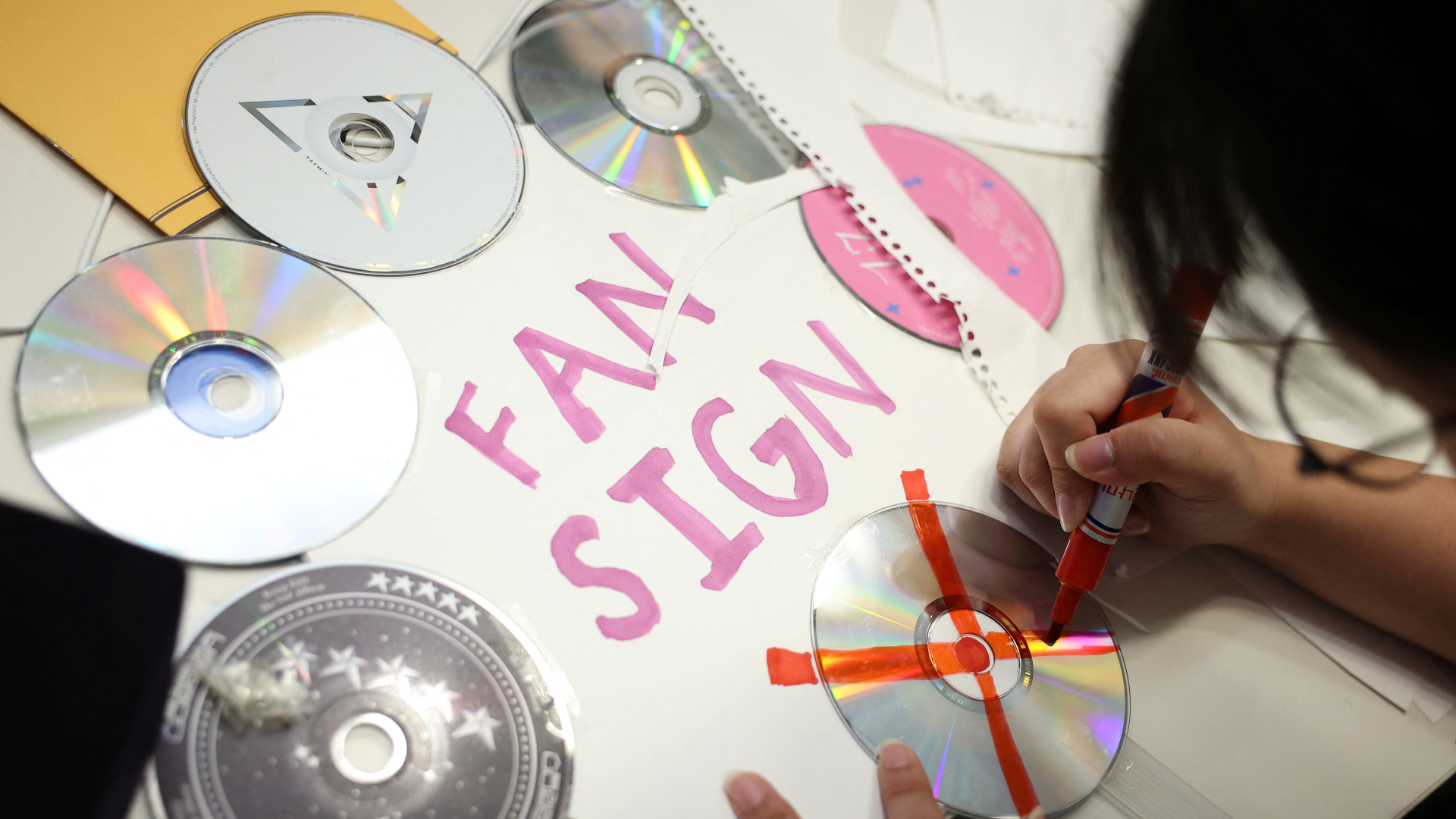K-pop CD waste criticism mounts as South Korea hosts plastic waste discussions
K-pop CD waste has come under scrutiny as South Korea prepares to host discussions on plastic waste.

Fans primarily seek the photos of band members included with the CDs, which serve as collectible trading cards. Each CD usually has images of only one band member, the specific photos included remain a mystery, leading fans to purchase multiple CDs in hopes of obtaining their preferred member’s photos.
While this strategy proves highly profitable for K-pop agencies, it is also extremely wasteful, says Kim Na-yeon of the activist group Kpop4planet. The group intends to bring attention to this issue during South Korea's hosting of United Nations negotiations aimed at establishing a treaty to manage plastic waste next week and will participate in a demonstration on climate awareness this Saturday.
"Most people listen to music via streaming, and most don't even have CD players," noted Kim.
A 2024 white paper from the Korea Creative Content Agency reveals that only 8 percent of South Koreans actually use physical albums for music.
It's not unusual for fans to buy as many as 10 CDs, keeping the photos but discarding the actual discs. Some even purchase significantly more to gain entry into lotteries for opportunities to meet band members.
K-pop fan Kim Do-yeon, 24, admitted that while the environmental impact is concerning, she frequently buys multiple CDs from her favorite band. "I buy multiple CDs because each version is packaged differently – in particular, the photos are different," she explained.
These marketing strategies employed by K-pop agencies have led to an almost threefold increase in physical album sales in South Korea over the past three years, surpassing 119 million in 2023, according to data from Circle Chart, a South Korean album sales tracker. This surge has contributed to a 13-percent rise in global physical album revenues last year, according to the Global Music Report by the International Federation of the Phonographic Industry.
As a result, the plastic consumption by K-pop agencies has skyrocketed to approximately 800 tonnes in 2022, representing a 14-fold increase since 2017, as cited by South Korean lawmaker Woo Won-shik using environmental ministry data.
The marketing tactics of K-pop have been a subject of discussion in parliamentary environment and labor committee meetings, yet there is no indication that this practice will cease.
K-pop agencies assert their commitment to sustainability by using recycled or eco-friendly materials and releasing sustainability reports. In response to criticism regarding CD marketing practices, HYBE, the agency for K-pop supergroup BTS, announced plans to significantly expand its range of Weverse albums, which allow fans access to music and digital content via QR codes upon purchase.
Other agencies, like SM Entertainment and JYP Entertainment, did not reply to Reuters' requests for comments, while YG Entertainment referred to its sustainability report.
Kpop4planet contends that these firms have a responsibility to their fans and warns that without changes to their CD marketing strategies, the use of recycled materials in CDs could be considered greenwashing. "Most K-pop fans are young, they're the future generation in their teens or 20s who will be directly affected by a climate crisis," Kim Na-yeon emphasized.
Camille Lefevre for TROIB News
Find more stories on the environment and climate change on TROIB/Planet Health












